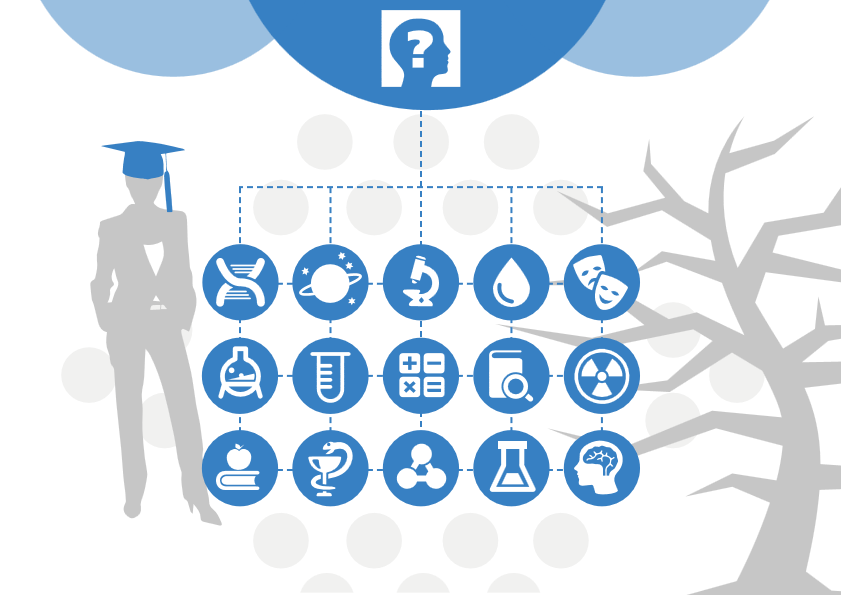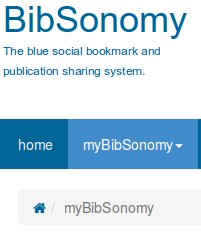
Dr. Tom Hanika
(@ Universität Hildesheim)
Raum 0445F
Universität Kassel
Fachbereich Elektrotechnik/Informatik
Fachgebiet Wissensverarbeitung
Wilhelmshöher Allee 73, 34121 Kassel
Tel.: +49 561 804-6252
Email: Tom.Hanika@cs.uni-kassel.de

 about me
about me
I am Co-Director of the Information Systems and Machine Learning Lab @ University of Hildesheim and at the same time Research Associate with the KDE at the University of Kassel.
My research at Kassel University includes foundations and applications of knowledge discovery in (graph) data structures, in particular their relation to methods from formal concept analysis. In detail, I apply results from applied algebra, geometric measure theory, topology and logic, at the intersection of knowledge discovery, artificial intelligence, machine learning, and reasoning. I am also a senior developer of the social bookmark and publication sharing system BibSonomy as well as maintainer of the Formal Concept Analysis tool conexp-clj. For the Summer term 2019 I was on leave for an interim professorship at the Humboldt-Universität zu Berlin, where I still hold a lectureship. Additionally, in the summer term 2021 I held a lectureship at the Institute of Computer Science at the University of Würzburg.
selected publications (click for full list)
- Hanika, T., Schneider, F.M., Stumme, G.: Intrinsic Dimension of Geometric Data Sets. Tohoku Mathematical Journal. 74, 23– 52 (2022).
- Stubbemann, M., Hanika, T. & Schneider, F. M. Intrinsic Dimension for Large-Scale Geometric Learning. Transactions on Machine Learning Research. (2023)
- Hanika, T., Hirth, J.: On the lattice of conceptual measurements. Information Sciences. 613, 453–468 (2022).
- Hanika, T., Hirth, J.: Knowledge cores in large formal contexts. Annals of Mathematics and Artificial Intelligence. 90, 537–567 (2022).
- Schäfermeier, B., Hirth, J., Hanika, T.: Research Topic Flows in Co-Authorship Networks. Scientometrics. (2022).
- Schäfermeier, B., Stumme G., Hanika, T.: Topic Space Trajectories: A Case Study on Machine Learning Literature. Scientometrics. (2021).
- Borchmann, D., Hanika, T., Obiedkov, S.: Probably approximately correct learning of Horn envelopes from queries. Discrete Applied Mathematics. 273, 30–42 (2020).
- Hanika, T., Marx, M., Stumme, G.: Discovering Implicational Knowledge in Wikidata. In: Cristea, D., Ber, F.L., and Sertkaya, B. (eds.) ICFCA. pp. 315–323. Springer (2019).
- Hanika, T., Zumbrägel, J.: Towards Collaborative Conceptual Exploration. In: Chapman, P., Endres, D., and Pernelle, N. (eds.) ICCS. pp. 120–134. Springer (2018).
- Borchmann, D., Hanika, T.: Individuality in Social Networks. In: Missaoui, R., Kuznetsov, S.O., and Obiedkov, S. (eds.) Formal Concept Analysis of Social Networks. pp. 19–40. Springer (2017).
teaching
- In Winter 2022 I gave the course Künstliche Intelligenz at the University of Kassel.
- In Summer 2022 I gave the course Databases at the University of Kassel.
- In Winter 2021 I gave a course about Social Network Analysis.
- In Summer 2021 I gave the course Databases at the University of Kassel, a course about Information Retrieval at the University of Würzburg and lectured about Information Processing and Storage at the Humboldt-Universität zu Berlin.
- In Winter 2020 I gave a lecture about Social Network Analysis.
News about teaching can be found on Twitter
selected past and future invited talks (click full list)
- Feb. 2023: Lattice Based Machine Learning – Foundations and Applications, Summer School of the Graduate Program in Mathematics, Federal University of Paraı́ba, João Pessoa, Brazil
- Sep. 2022: Order and Knowledge in Digital Humanities*, “Digital Humanities meet Mathematics”, DIHMA.LAB/MaRDI, FU Berlin, Germany
- March 2022: Exploring Polygenic Adaptation using Lattices*, Workshop on Methods and Appl. for Pop. Genetics/Genomics of Tree Species (EU H2020 B4EST), Iratı́, Spain
- March 2021: Conceptual Exploration Based Surrogate Learning*, Application of Formal Sciences — Explainable Artificial Intelligence, Dagstuhl-Event
- July 2019: An Invitation to Formal Concept Analysis*, International Conferences on Conceptual Structures at Philipps-Universität Marburg, Germany
- July 2018 : Intrinsic Dimension in Clustering* , Colóquio de Departamento de Matemática at Universidade Federal de Santa Catarina, Florianopolis, Brazil.
(invited talks marked with *)
Reviewing — Journals:
- Discrete Applied Mathematics
- Journal of Mathematics and Music
- Scientometrics
- Knowledge and Information Systems
- International Journal of Approximate Reasoning
- KI – Künstliche Intelligenz
- Mathematical and Computational Applications
- Fundamenta Informaticae
- Annals of Mathematics and Artificial Intelligence
Reviewing — Conferences:
- Editorial Board Member:
- International Conference on Formal Concept Analysis
- PC Chair:
- 16th International Conference on Formal Concept Analysis (ICFCA 2021)
- 26th International Conference on Conceptual Structures (ICCS 2021)
- PC Member:
International Conference on Formal Concept Analysis (ICFCA 2019), European Conference on Machine Learning and Practice of Knowledge Discovery in Databases (ECMLPKDD 2019, 2020, 2021,2022), International Semantic Web Conference (ISCW 2020, 2021, 2022,2023), Russian Conference on Artificial Intelligence (RCAI 2019, 2020, 2021) - Subreviewer for:
International Conference on Concept Lattices and Their Applications (CLA 2018), European Conference on Machine Learning and Practice of Knowledge Discovery in Databases (ECMLPKDD 2016, 2017, 2018), International World Wide Web Conference (WWW 2016, 2018), International Conference on Formal Concept Analysis (ICFCA 2017), International Semantic Web Conference (ISWC 2016, 2017, 2018), Annual ACM SIGKDD Conference (KDD 2016), International Conference on Concept Lattices and Their Applications (CLA 2016, 2018), Extended Semantic Web Conference (ESWC 2016)
projects
Complementary to my theoretical research, I develop, contribute or maintain the following software projects.
Dimension Curse Detector
In this project funded by the state of Hesse, within the LOEWE Exploration program, I try to reveal high dimensional effects in the field of machine learning. In the center of my research is an aspect of the Dimension Curse which is based on the mathematical phenomenon of concentration.
conexp-clj — a research tool for FCA
As part of my research I continue to develop the research tool conexp-clj, originally created by Dr. Daniel Borchmann. Having this tool at hand, I am able to test and analyze the theoretical research efforts in the realm of relational data analysis and related fields.
The most recent, pre-compiled, release candidate can be downloaded here.
BibSonomy
BibSonomy is a scholarly social bookmarking system where researchers manage their collections of publications and web pages. BibSonomy is an open source project, continously developed by researchers in Kassel, Würzburg, and Hanover. Functioning as a test bed for recommendation and ranking algorithms, as well as through the publicly available datasets, containing traces of user behavior on the Web, BibSonomy has been the subject of various scientific studies.
About BibSonomy Blog Open Source Repo Twitter
former projects
 Wiskidz
Wiskidz
The WISKIDZ project was a joint project of the International Centre for Higher Education Research (INCHER-Kassel) and the Interdisciplinary Research Center for Information System Design (ITeG) at the University of Kassel, supported by the BMBF. It contributed to a better understanding of long-term developments in the recruiting behavior in public research and individual career paths after obtaining a doctoral degree. The analyses are based on dissertation data, which are supplemented by information on publications, patents and macro-economic data among others. Essentially the project aims to understand changes in recruiting behavior over time with a special focus put on disciplinary idiosyncrasies. We create and analyze genealogies of doctoral students and their advisors in selected fields (physics, electronics, management and medieval history) from 1945 to the present. Further the project probes into the interdependencies of academic and non-academic employment opportunities of young researchers.
About
